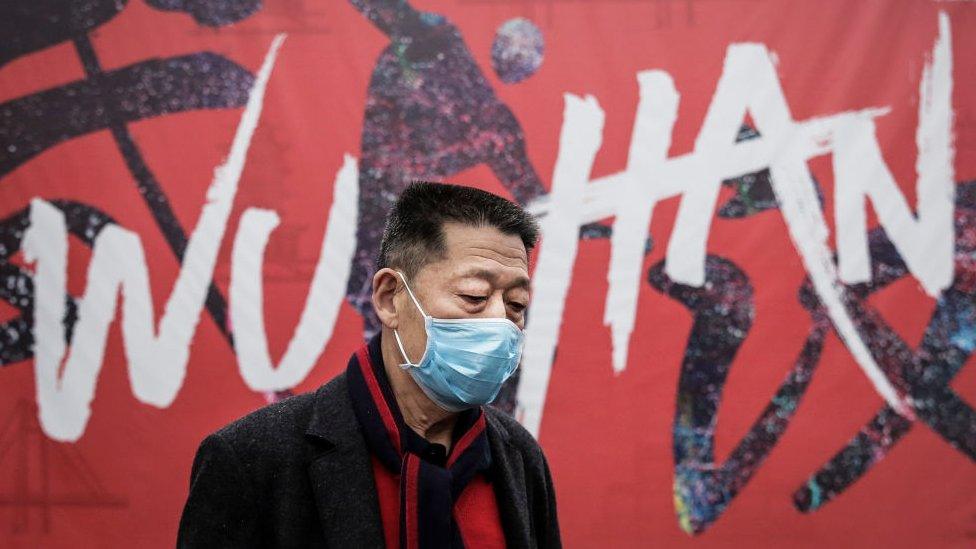Coronavirus: How are patients treated?
- Published
Epidemic v pandemic: What's the difference?
People confirmed to have the new coronavirus are getting hospital treatment - but what kind of treatment are they getting and how effective is it?
What is this virus?
The virus, so far called 2019-nCoV, is known to have killed 170 people in China and infected more than 7,000. It has also spread to 16 other countries.
It's a newly identified member of the coronavirus family - common infections which cause cold-like symptoms, a fever, coughing and respiratory problems.
Many people who get this new virus will only suffer mild symptoms, and most are expected to make a full recovery.
But like Sars (also a coronavirus) and influenza, this new one appears to pose a particular risk for elderly people and those with pre-existing illnesses.
There is no cure, in the same way that there is no cure for the common cold.
What happens in hospital?
Those who get admitted to hospital are given treatment for their symptoms while their immune systems try to fight the virus off.
Hospitalisation also serves to isolate patients and stop the virus spreading, says Prof Jonathan Ball, a virologist at the University of Nottingham.
In severe cases, the virus can cause pneumonia - an inflammation of the lungs. In those cases breathing may need to be supported, Prof Ball says.
Patients are given oxygen and in the worst cases may be put on a ventilator. About one in four cases are thought to be severe.
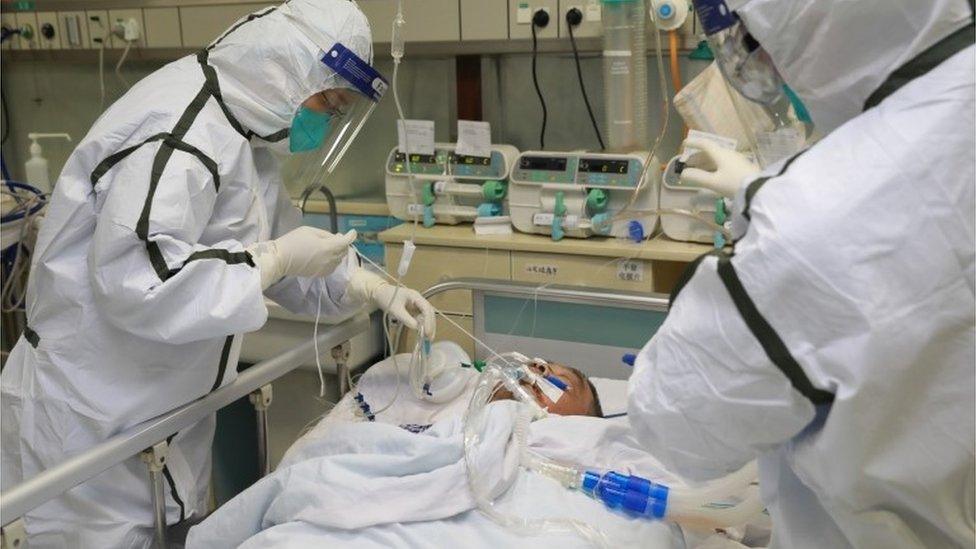
Patients who develop pneumonia - such as this patient in Wuhan - may need breathing support
"If a patient has respiratory symptoms they support breathing. If it is pressure on organs they would try to support the body in alleviating that pressure," says Prof Ball.
In milder cases, patients struggling to maintain blood pressure can be given an intravenous drip. Fluids can also be given in cases of diarrhoea, and ibuprofen is also available for pain relief.
Zhang Dingyu, head of the Wuhan Jinyintan Hospital, told China's state broadcaster CCTV that patients who'd recovered there were "in good condition".
Some may have some lingering lung issues, he said, "but I'm optimistic that they will recover well".
Could HIV drugs help?
Although there's no vaccine against the new coronavirus, tests are under way in China to see whether two antiviral drugs used to treat HIV - lopinavir and ritonavir - could be an effective treatment.
These drugs were shown to help fight the Sars virus in 2003, after evidence emerged that HIV patients who were using the drugs and who also had Sars had better outcomes.
Like others who've been in Hubei province, the BBC's Stephen McDonell is staying away from the office for two weeks
The hope is that Sars and the new coronavirus are similar enough for the drugs to have an impact, Prof Ball says.
"If there are early signs it might work, it might get used on a compassionate basis - in severe cases - because the drugs haven't been approved for that use."
"Compassionate use" is when unapproved medicine are made available, under strict conditions, to the very ill or most at-risk patients.
What about the search for a vaccine?
The race is on to develop a vaccine but, realistically, it could be years away.
Despite research into Sars and Mers - which appeared in 2003 and 2012 respectively - there are still no vaccines for them.
Any vaccine would first need to be proven effective and safe in animals and then again in humans before being licensed, Prof Ball says.
Before being given to anyone, it would need to be approved by the World Health Organization - unless it was used on a compassionate basis.
"In theory there could be a vaccine in a year or two but definitely not in the next six months," Prof Ball says.

Learn more about the new virus

Your questions: You asked, we answered
The story explained: How worried should we be?
Wuhan profiled: The city now in lockdown
In detail: Follow all our coverage here
- Published28 January 2020
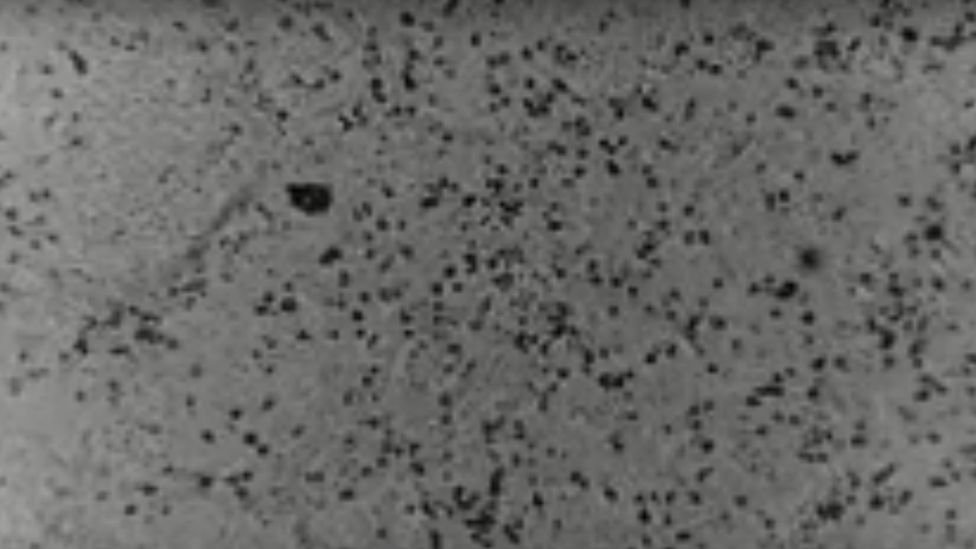
- Published27 January 2020
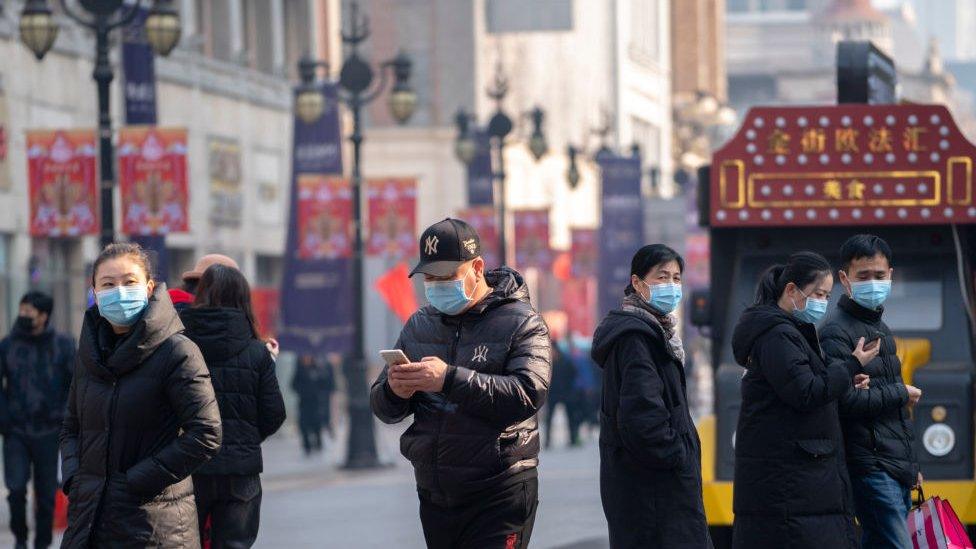
- Published6 October 2021

- Published26 January 2020
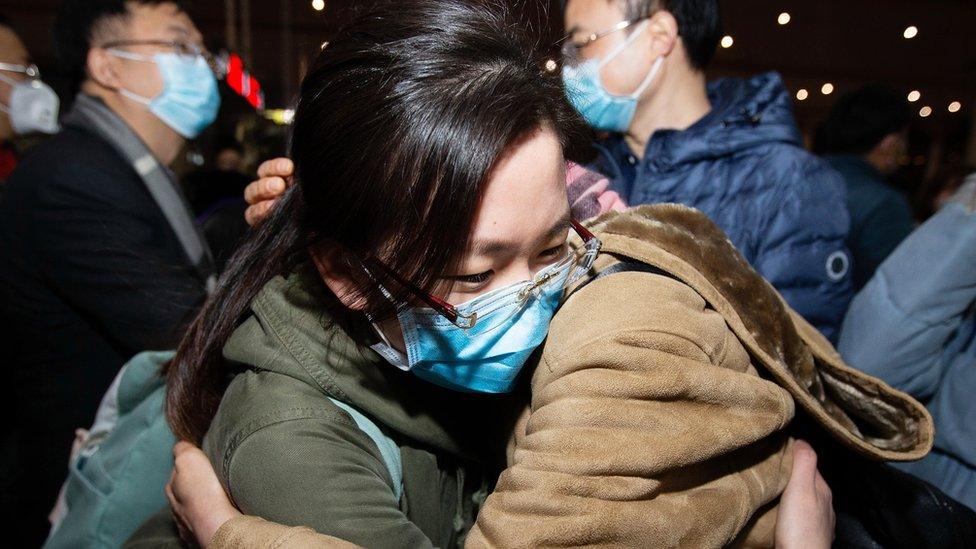
- Published28 January 2020
